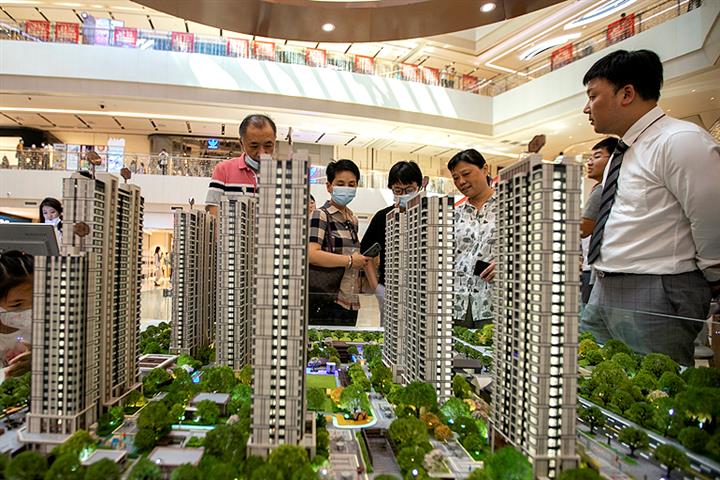 Chinese Experts Split on Whether to Factor House Prices in CPI
Chinese Experts Split on Whether to Factor House Prices in CPI(Yicai Global) Dec. 29 -- Experts differ on whether the current consumer price index accurately reflects cost of living changes and whether ever-rising home asset prices mesh with China's CPI as the country is poised to make a new round of adjustments to CPI statistics next year.
China’s CPI measure now has less coverage of investments and asset prices, which will yield skewed CPI, former People's Bank of China's governor Zhou Xiaochuan wrote.
The weighting of residences in China's CPI mainly references the structure of consumer outlays, adopting a virtual depreciation method of housing construction costs in the accounting of self-owned house rents, said Zhou Yue, chief analyst at Zhongtai Securities' fixed income division.
By contrast, the “virtual rent" method is usually used to estimate real rents from homes owned overseas. The method China currently uses cannot accurately reflect changes in actual market rents, so a close eye must remain riveted on changes the government makes to calculate the CPI's residential item prices.
Current CPI statistics are biased at the sampling level, with the accounting concept of some sub-index indicators outdated, said some pundits recently attending the China Finance 40 Forum, a think tank made up of senior Chinese regulatory officials and financial experts. Taking the residential prices in CPI as an example, only using the cost method to calculate residents' living costs and their changes will underestimate its weight in the CPI as the change of housing prices impacts rents.
Unaccountable Heights
He Keng, former director of China's National Bureau of Statistics, begs to differ here. Many countries have seen property prices soar, but they simply fold it into a suitable price case for CPI or consumption, he said. One cannot say that just since house prices are rising quite high, you must take this into account, he added, because the demand for housing is only a problem for some people, with many others left unaffected.
The PBOC needs to keep an eye on asset prices, though embedding them into inflation statistics is hard to achieve in the short term, Hu Chi, a researcher at the Research Center of the State-Owned Assets Supervision and Administration Commission of the State Council, told Yicai Global. This is because asset prices may impact both inflation and inflation expectations, he explained.
Swift, steady gains in asset prices may whet risk appetites and fuel financial leveraging, thus aggravating the fragility of the financial system and impacting its stability, according to sector analysts. Maintaining stability in the regime and curbing investors' excessive risk-taking requires a measured response from the central bank to asset price rises.
China's current CPI statistics cover the prices of eight categories of goods and services, including clothing, housing and medical care, and are adjusted every five years to accurately incorporate new changes in the consumption structure and actual changes in prices.
Editors: Zhang Yushuo, Ben Armour, Xiao Yi